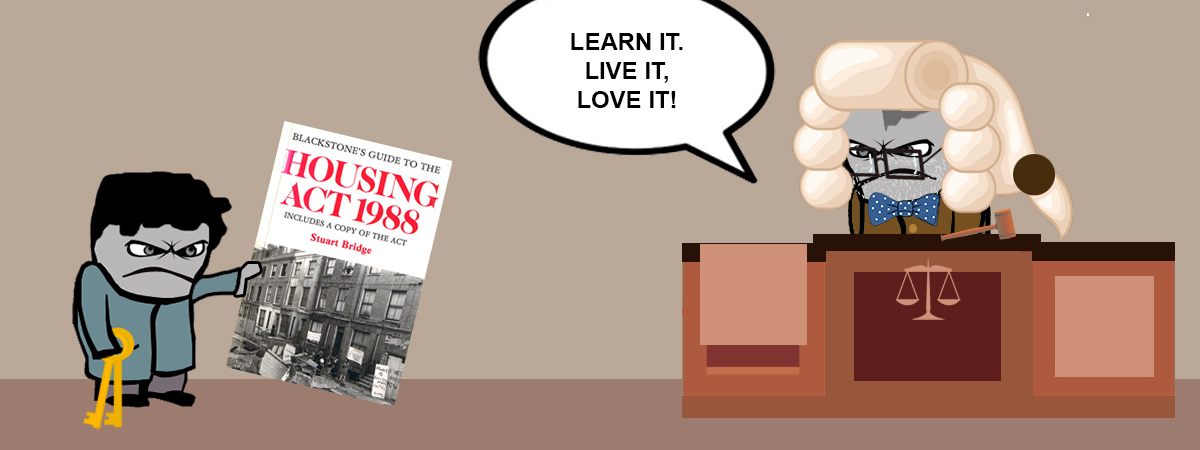
Anyone who’s a landlord or tenant may have come across the term “The housing Act 1988”, it’s usually referenced multiple times in most Tenancy Agreements
Essentially, the act is the law which governs the Private Rented Sector. It’s the rule book covering the statutory rights and legal responsibilities for both landlords and tenants. This is NOT the same as a tenancy agreement (I’ve noticed people get confused about that). A tenancy agreement is the legal contract between landlord and tenant, stipulating the conditions of the tenancy E.g. length of tenancy, the amount of rent to pay etc. The Housing Act stipulates what the conditions can and can’t be in the Tenancy Agreement.
It’s quite common for clauses in the Tenancy Agreement to conflict with the statutory rights written in the Housing Act. In this case, the Tenancy Agreement is invalid, as the Housing Act is the ruling law, which cannot be overwritten. Bear in mind, Assured Shorthold Tenancy Agreements were introduced as part of the Housing Act 1988.
Why was the Housing Act introduced?
At the turn of the century the Private Rented Sector was largely built of “Protected and Statutory” tenancies which meant the law was largely in favour of tenants. Back then, tenants had the right to stay in a landlord’s property almost indefinitely and pass the tenancy down to relatives. It was extremely difficult for a landlord to regain possession of their own property.
Due to the uneven rights, there was a shortage of people willing to let out their properties; no one wanted to take the risk of losing control over their property. Moreover, at this point, most of the council homes had been sold, consequently there was a major shortage of housing.
In order to overcome this serious problem, the government needed to revive the private rented sector to make more housing available.
The government spent over 250 hours putting together prospective laws to make the private rental sector fairer for landlords, with the hope of enticing more landlords to emerge. Of course, the proposed laws got passed, which was the birth of, “The housing act 1988”
The new laws meant landlords could now be sure of their right to gain back possession of their property should they need to, provided they follow the correct procedures.
Revisions to The Housing Act 1988
The initial laws that contributed to the act were proposed in 1988, but didn’t come into effect until the 15th January 1989.
Over the years, the act has been updated and modified. Revisions were made in 1996, regarding grounds of possession, rent arrears, and various other key areas, which came into effect in 1997.
Why should you care about the Housing Act?
It’s important for both landlord and tenant to be familiar with the Housing Act because it stipulates their legal rights, which is extremely important to ensure both parties are treated fairly.
You don’t need to memorise or study it, but it’s important to remember the Housing Act exists so you can refer to if needed.
Where can I read The Housing Act?
Housing Act 1988
Housing Act 1996
Disclaimer: I'm just a landlord blogger; I'm 100% not qualified to give legal or financial advice. I'm a doofus. Any information I share is my unqualified opinion, and should never be construed as professional legal or financial advice. You should definitely get advice from a qualified professional for any legal or financial matters. For more information, please read my full disclaimer.


 Landlord Products / Services
Landlord Products / Services


























I need to evict my son and his 3 plus one to come family out of the house because i cannot pay the mortgage neither can he what help is available and what must i do before the house is repossessed